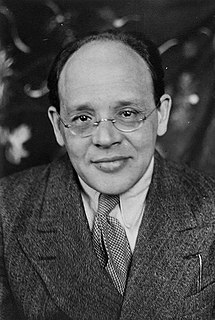A Quote by William T. Vollmann
Most literary critics agree that fiction cannot be reduced to mere falsehood. Well-crafted protagonists come to life, pornography causes orgasms, and the pretense that life is what we want it to be may conceivably bring about the desired condition. Hence religious parables, socialist realism, Nazi propaganda. And if this story likewise crawls with reactionary supernaturalism, that might be because its author longs to see letters scuttling across ceilings, cautiously beginning to reify themselves into angels. For if they could only do that, then why not us?
Quote Topics
About
Across
Agree
Angels
Author
Because
Beginning
Bring
Cannot
Causes
Ceilings
Come
Condition
Could
Crafted
Critics
Desired
Falsehood
Fiction
Hence
Letters
Life
Life Is
Likewise
Literary
May
Mere
Might
Most
Nazi
Nazi Propaganda
Only
Parables
Pornography
Pretense
Propaganda
Protagonists
Reactionary
Realism
Reduced
Religious
See
Socialist
Story
Themselves
Then
Us
Want
Well
Why
Why Not
Related Quotes
Every religion, Eastern and Western, has the same archetype of benevolent guides in Heaven helping us, whether they are called bodhisattvas, deities, devas, or angels, as they are called by the monotheistic religions of the West. Angels can unite people across religious and spiritual divides. Angels are something we all agree on. Nobody fights about angels.
The person who imagined that he could not be the victim of propaganda because he could distinguish truth from falsehood, is extremely susceptible to propaganda, because when propaganda does tell the truth, he is then convinced that it is no longer propaganda: moreover, his self-confidence makes him all the more vulnerable to attacks of which he is unaware.
If the point of life is the same as the point of a story, the point of life is character transformation. If I got any comfort as I set out on my first story, it was that in nearly every story, the protagonist is transformed. He's a jerk at the beginning and nice at the end, or a coward at the beginning and brave at the end. If the character doesn't change, the story hasn't happened yet. And if story is derived from real life, if story is just condensed version of life then life itself may be designed to change us so that we evolve from one kind of person to another.
On a spectrum of literary productions, memoir is just another form. If the person doing the reviewing or critiquing was ill-educated about literary forms, they could write something dunderheaded about the author or their life (I've seen these and barfed at them), but anyone who is well-practiced and educated in literature - why would they leave that at the door when entering memoir?
Story is the oldest, commonest, most beloved, and most effective form of communication because our life is essentially a story. That's why the Bible is the most realistic of religious books. We can easily ignore or argue away abstractions, but we bump up against concretely real people, things, and events in story, as in life.
This fear is one of the horrors of an author's life. Where does work come from? What chance, what small episode will start the chain of creation? I once wrote a story about a writer who could not write anymore, and my friend Tennessee Williams said, 'How could you dare write that story, it's the most frightening work I have ever read.' I was pretty well sunk while I was writing it.
In the central cases of physical pain, then, it appears that at least part of what is bad about our condition is the way it makes us feel. Here there seem to be no problems with a purely mental state account, no counterpart to the experience machine that could bring us to think that we are being deceived by mere appearances. [...] If I am suffering physical pain then I can be quite wrong about the organic cause of my affliction, or even about whether it has one, without that error diminishing in the slightest either the reality of my pain or its impact on the quality of my life.
The masculine imagination lives in a state of perpetual revolt against the limitations of human life. In theological terms, one might say that all men, left to themselves, become gnostics. They may swagger like peacocks, but in their heart of hearts they all think sex an indignity and wish they could beget themselves on themselves. Hence the aggressive hostility toward women so manifest in most club-car stories.
This symmetrical composition--the same motif at the beginning and at the end--may seem quite "novelistic" to you, and I am willing to agree, but only on condition that you refrain from reading such notions as "fictive," "fabricated," and "untrue to life" into the word "novelistic." Because human lives are composed in precisely such a fashion.
Opportunities may come along for you to convert something -something that exists into something that didn't yet. That might be the beginning of it. Sometimes you just want to do things your way, want to see for yourself what lies behind the misty curtain. It's not like you see songs approaching and invite them in. It's not that easy. You want to write songs that are bigger than life. You want to say something about strange things that have happened to you, strange things you have seen. You have to know and understand something and then go past the vernacular.







































